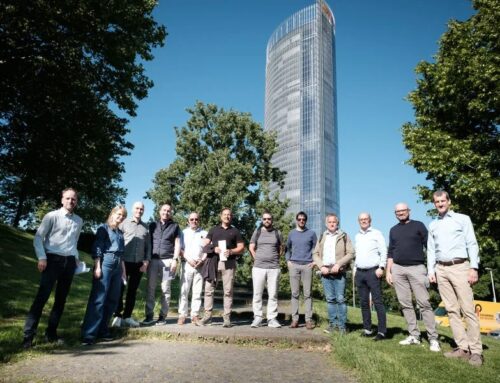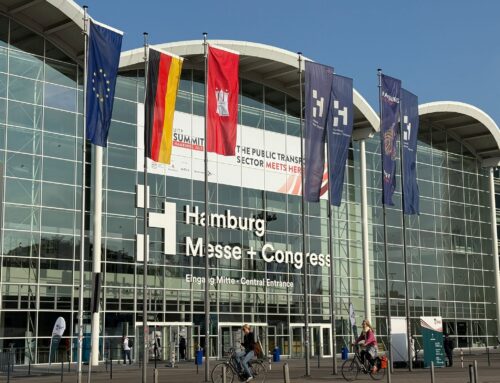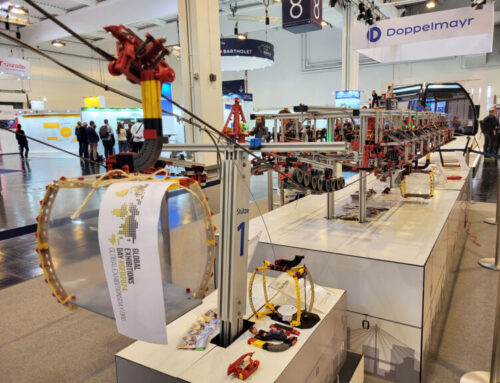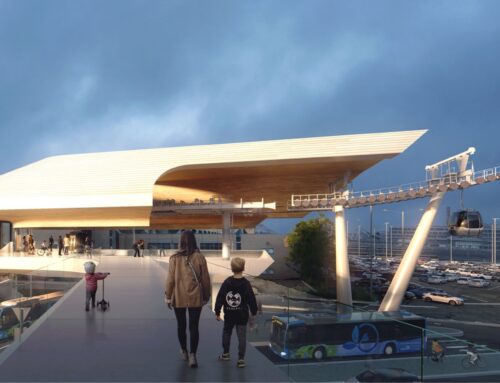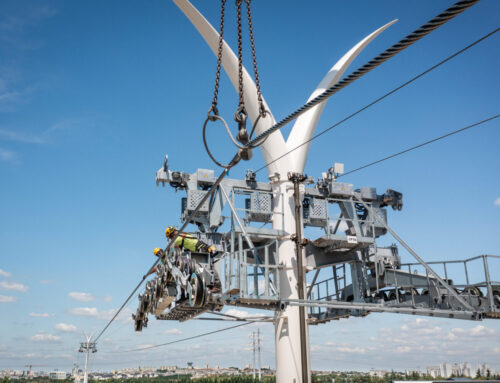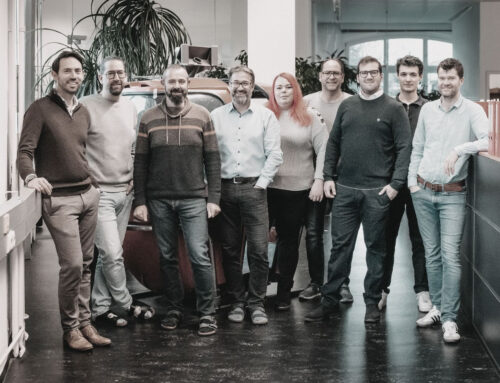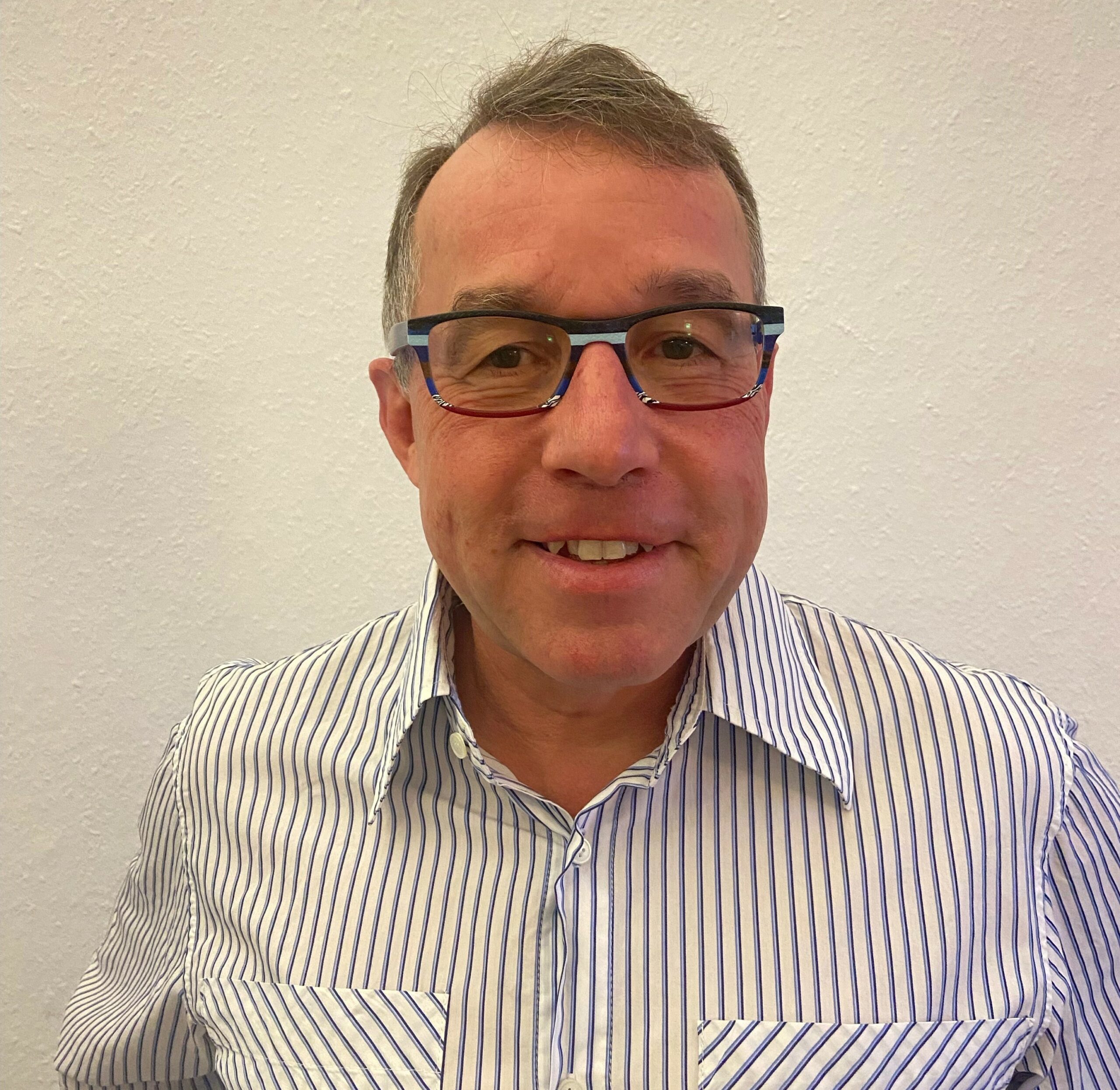
Cities, SI Urban 2/2023
Development of urban cable cars
SI Urban: How did you become involved in the topic of urban cable car systems?
Christoph Rittersberger: On one hand, it was through personal experiences both here and previously in France.
That ignited my interest in this topic. On the other hand, within our company group, we recognized early on that we needed to actively offer solutions for the shift in transportation.
Urban cable car systems soon came onto our radar. I successfully applied internally for this area of responsibility.
Could you introduce the company TRANSDEV?
The TRANSDEV Group originally originates from France. We are a provider of passenger mobility services in public transportation. We operate as a mobility service provider in approximately 20 countries worldwide.
In early 2019, the owner-operated Rethmann Group acquired 34% of the company. In Germany, TRANSDEV GMBH is now the largest private provider in the market for buses as well as regional trains.
Does the company engage with all types of cable cars?
We are open to all systems. Anything that is cable-drawn is of interest to us as operators. Currently, we see more potential for urban aerial cable cars for public transportation in Germany.
However, we also operate funiculars like in Le Havre (France) or soon in Covilhã (Portugal).
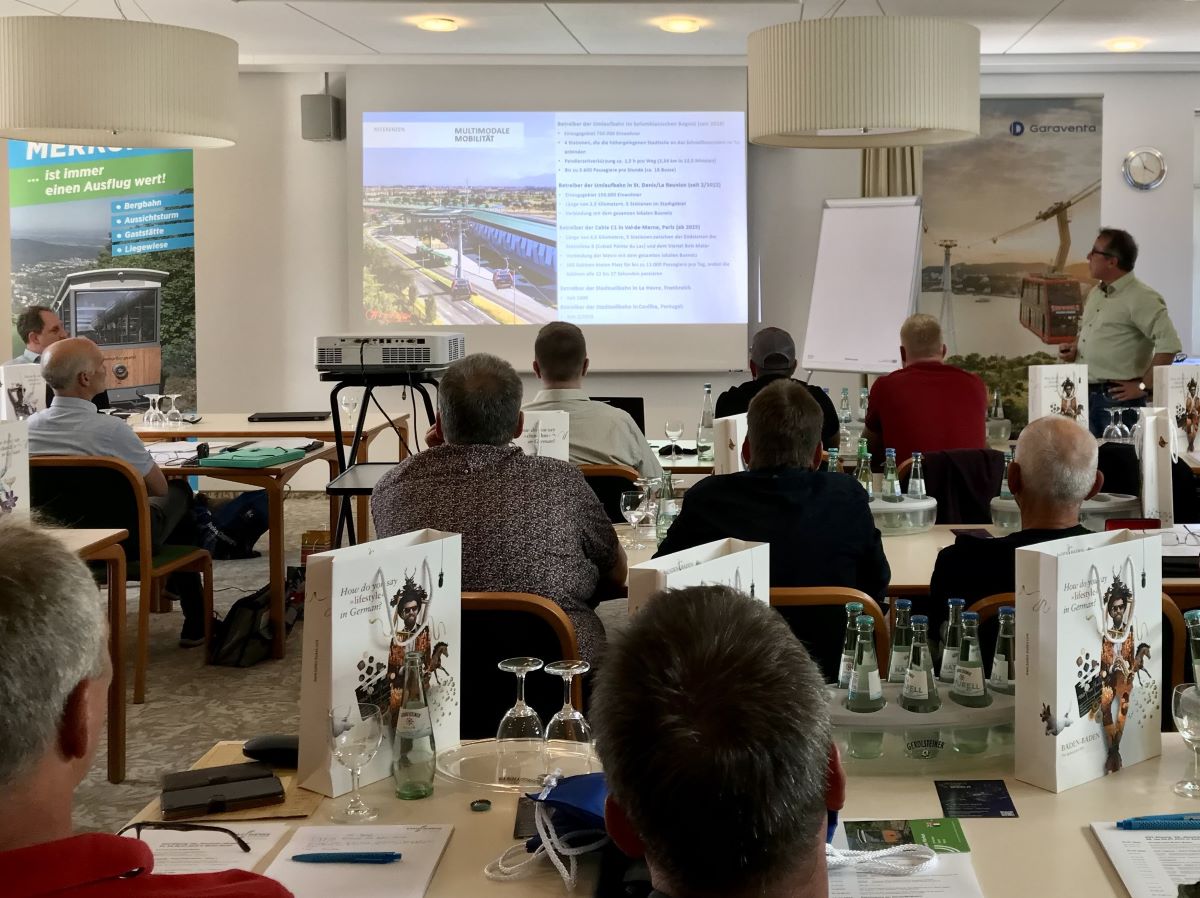
Christoph Rittersberger
during his presentation on multimodal mobility. © SI
Why are urban cable car systems of interest to the company in Germany?
Many cities are struggling with congested roads, conflicts between individual and public mobility, and other space utilization issues.
Urban aerial cable cars operate in the Plus-One level, creating an entirely new and unparalleled mobility space. With cable car systems, we can create new capacities, open up resources, and contribute to finding solutions.
In your view, what are the advantages of urban cable car cystems?
Cable car systems are quick to build, cost-effective, and recyclable. No other mode of transportation can overcome obstacles as effectively.
In addition to infrastructural aspects, traffic-related considerations play a vital role. We believe cable car systems are particularly well-suited to fill gaps in the public transportation network.
What is TRANSDEV‘s primary reference point when it comes to cable car systems?
Bogotá in Colombia. The city is densely populated and characterized by significant elevation differences.
Plans for a cable car system were initiated in 2012. The operation was put out for bidding in 2018, which we successfully applied for. Since then, the DOPPELMAYR cable car system has been running with great success and popularity.
The system is integrated with the city‘s BRT bus system. Both are operated by TRANSDEV in partnership with another company. Additional cable car lines are being considered.
The Cable Car in Bogotá, Columbia,
is integrated with the urban BRT (Bus Rapid Transit) system & operates with great success. © DOPPELMAYR
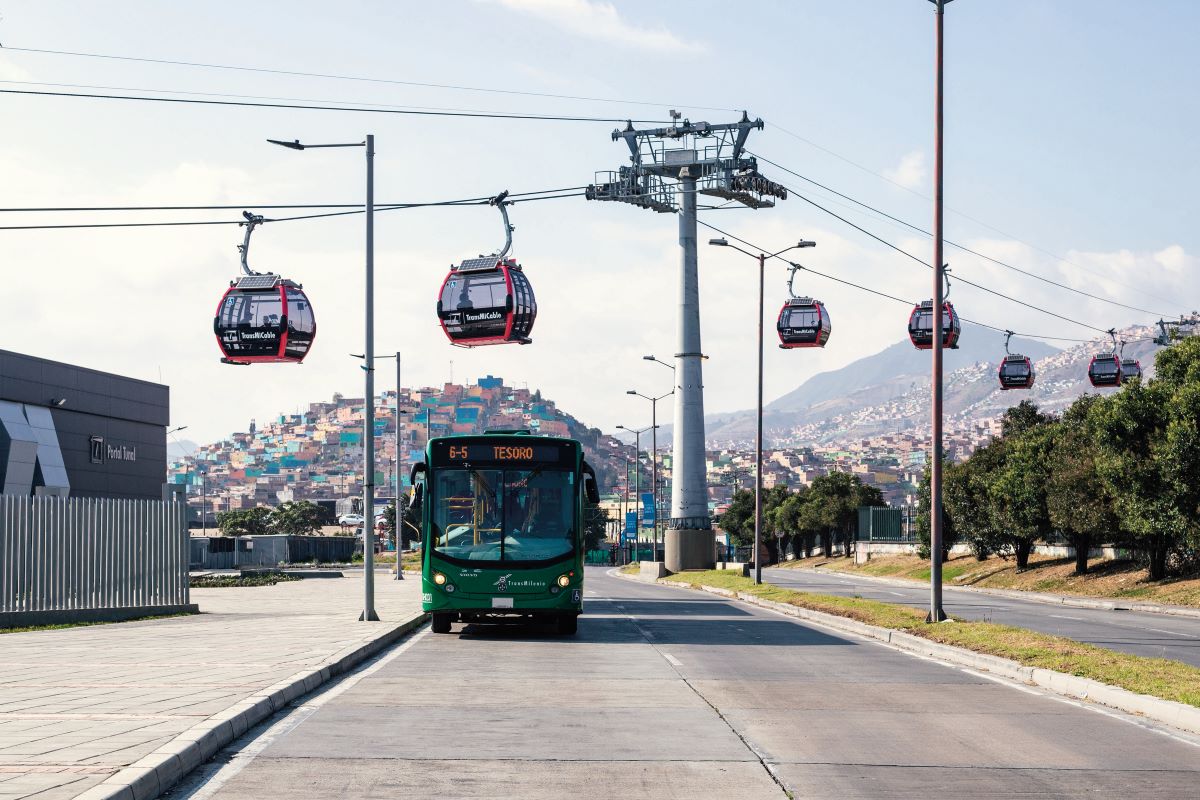
Paris is set to be the next reference point…
Exactly! The greater Paris area has been burdened by traffic for decades. Public transportation is organized radially from the city center to the outskirts.
There are few connections between districts. Cable car systems can traverse existing city structures and be integrated subsequently.
The first line is planned for the southeast and will be built by DOPPELMAYR. Together with Compagnie des Alpes, we won the bid for operation. Operations are scheduled to begin in 2025!
What are the differences between South Ameria & France?
South America is quite distant, and one needs the appropriate personnel and partners on-site to tap into these markets.
In France, TRANSDEV is recognized as a mobility operator and could clearly express its readiness for cable car operation.
Are there potentials for TRANSDEV in Germany?
There is a range of interested parties in this topic. We already support them from the idea, to explore fundamental questions.
Following that, an external feasibility study is required, including a system comparison. We operate in cities without transportation companies as well as in collaboration with existing municipal transportation companies.
We hope to operate additional cable car systems in Germany and France in the coming years.
Interview: Dominik Berndt
